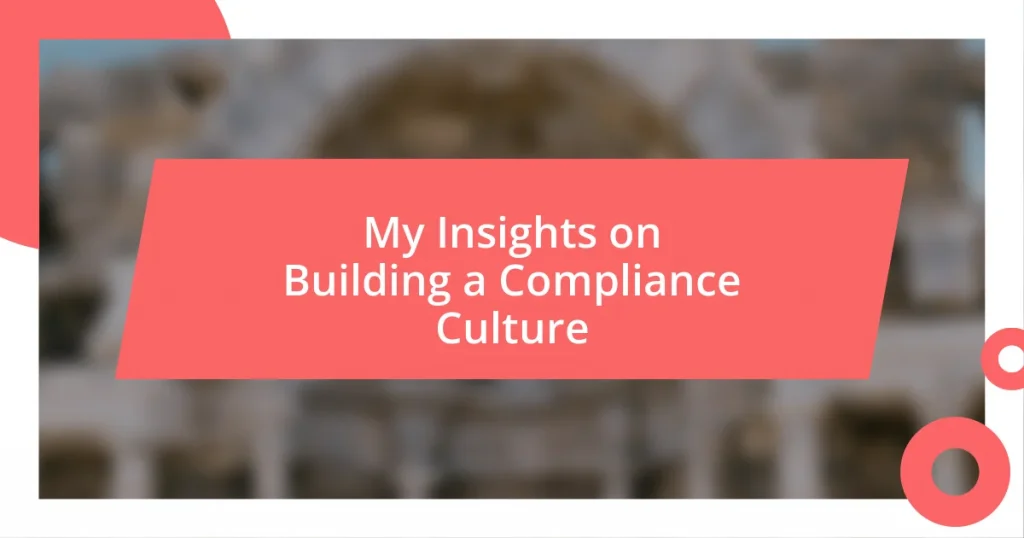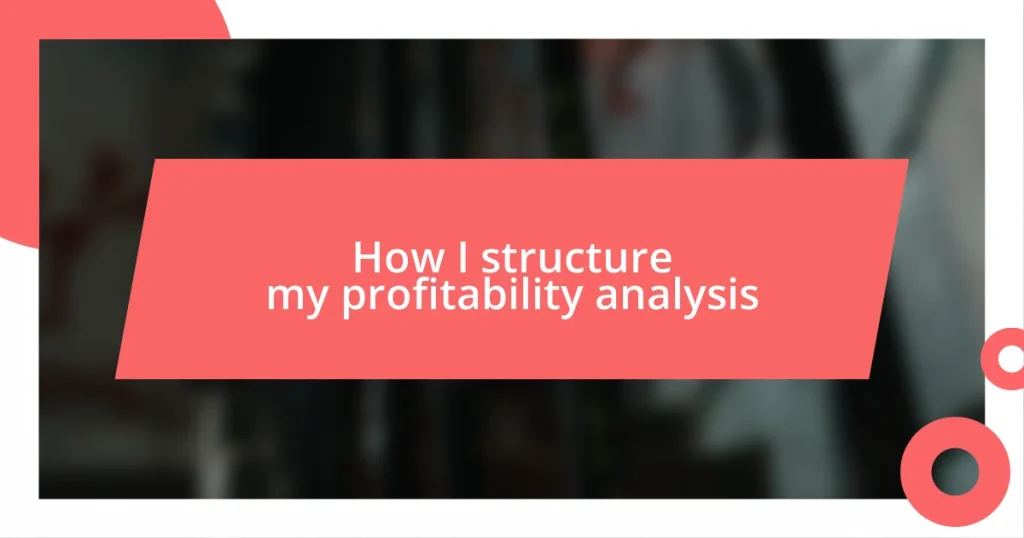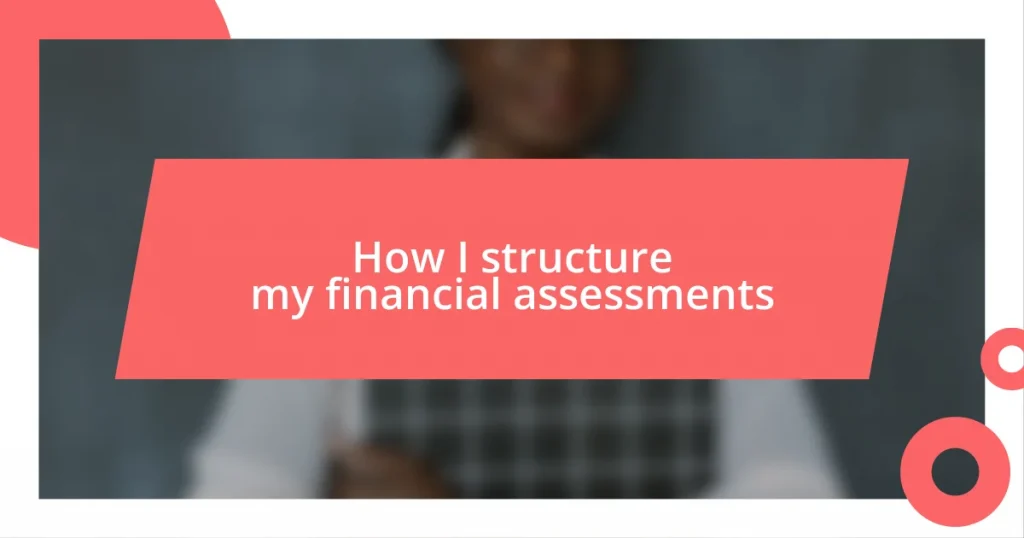Key takeaways:
- Building a compliance culture emphasizes ethical behavior, open dialogue, and shared responsibility among employees, fostering trust and integrity.
- Strong compliance frameworks mitigate risks, enhance employee engagement, and improve organizational reputation, ultimately serving as a strategic advantage.
- Leadership plays a pivotal role by modeling compliance behavior, fostering open communication, and providing necessary training and resources to empower employees.
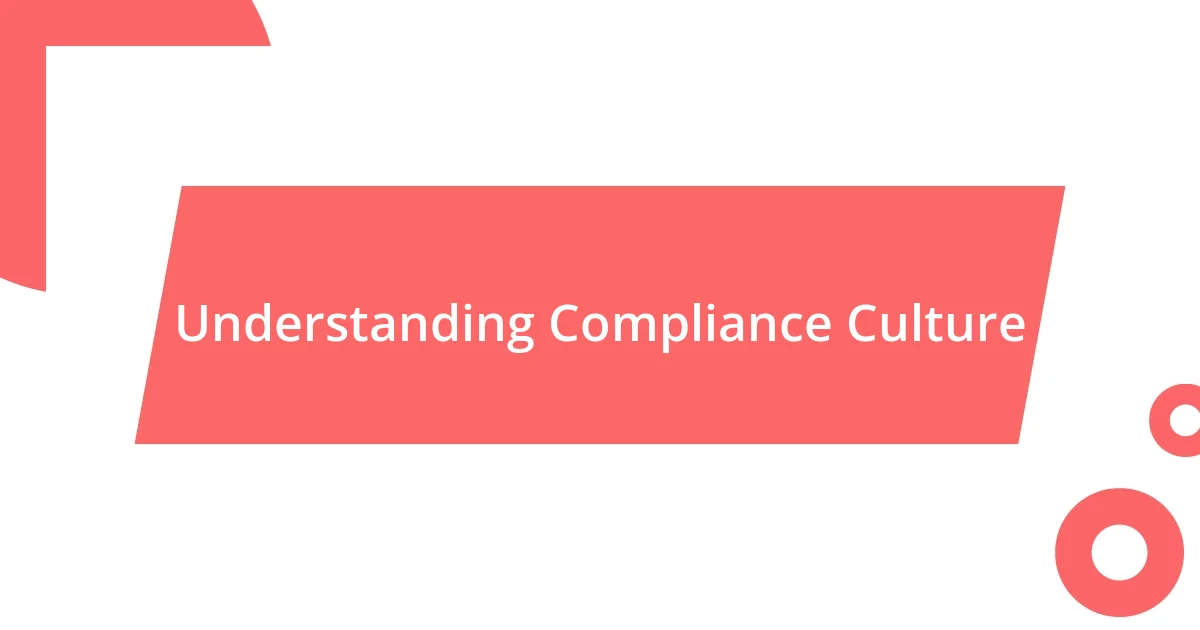
Understanding Compliance Culture
Building a compliance culture goes beyond merely adhering to rules; it’s about creating an environment where ethical behavior is valued and expected. I recall a time in my career when I witnessed a colleague stand up and voice concerns about a questionable practice. It impressed upon me how empowering this culture can be—encouraging open dialogue and shared responsibility. Isn’t it fascinating how one brave action can ripple through an entire organization, inspiring others to safeguard integrity?
At its core, a compliance culture cultivates trust. Employees need to feel that their organization cares about ethical standards as much as they do. I remember when our team lost a major account due to compliance issues; it hit home hard. That moment served as a wake-up call, prompting a commitment from everyone to foster a space where compliance isn’t just seen as a hindrance but as a collective value. How powerful is it to realize that we all have a role in upholding our company’s reputation?
Lastly, understanding compliance culture requires recognizing the importance of training and support. Early in my career, I attended a workshop that transformed the way I viewed compliance. Instead of a mundane checklist, it opened my eyes to its potential as a framework for positive workplace behavior. How can we expect employees to follow guidelines if they don’t truly understand them? It’s crucial for organizations to invest in ongoing education to ensure everyone is on the same page, making compliance an integral part of their daily routine.
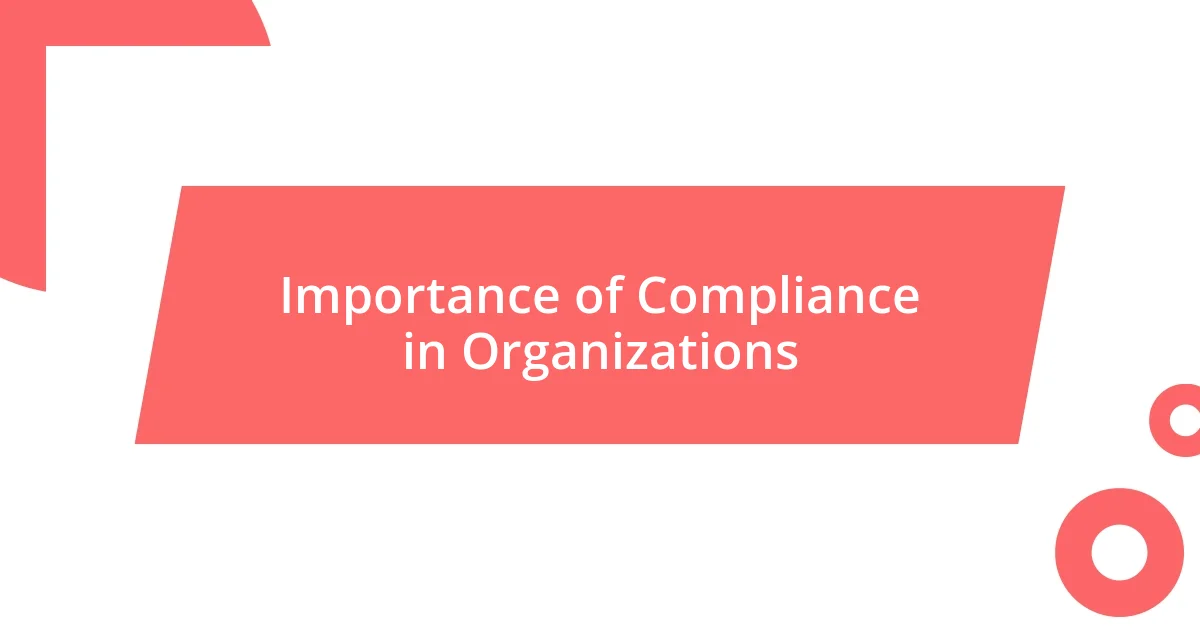
Importance of Compliance in Organizations
Compliance in organizations is essential not only for avoiding legal repercussions but also for building a strong foundation of integrity and trust. I recall attending a compliance seminar where the presenter emphasized a startling statistic—companies with a robust compliance culture report lower instances of fraud. This resonated with me; it highlighted that proactive measures can significantly mitigate risk while fostering a sense of security among employees. It’s remarkable how compliance can serve as a protective shield, isn’t it?
Moreover, a strong compliance framework nurtures employee engagement and morale. When I worked on a team that prioritized compliance, I noticed a tangible difference in our collaboration. Everyone felt responsible and empowered to voice concerns without the fear of retribution. It created an atmosphere where trust blossomed, allowing us to tackle challenges collectively. Would you agree that a culture emphasizing compliance makes employees feel valued and heard?
Lastly, organizations that prioritize compliance are often viewed positively by stakeholders, including customers and investors. I vividly remember a pitch meeting where our adherence to ethical standards became a selling point. The investors appreciated our commitment to compliance, which ultimately influenced their decision to support us. It reinforced my belief that compliance isn’t just about rules—it’s a strategic advantage that can lead to lasting relationships and success.
| Importance of Compliance | Impacts |
|---|---|
| Risk Mitigation | A robust compliance culture reduces fraud and legal penalties. |
| Employee Engagement | Employees feel empowered, fostering a sense of responsibility. |
| Positive Reputation | Stakeholders view compliant organizations as trustworthy and reliable. |
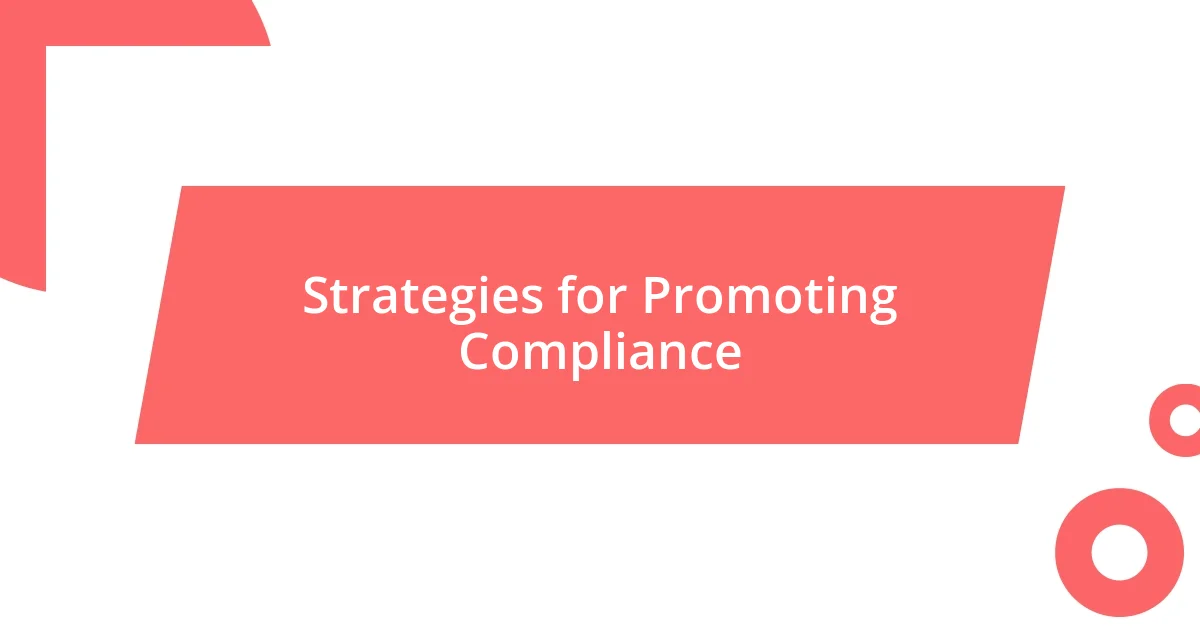
Strategies for Promoting Compliance
Promoting compliance isn’t just about putting policies in place; it’s about igniting a genuine commitment among all team members. When I implemented a monthly compliance check-in at my previous job, I was amazed at how open conversations around compliance became. Employees began to share their apprehensions and suggestions, transforming compliance from a top-down mandate into a shared mission. I truly believe that fostering this collective ownership is pivotal.
Here’s a list of strategies that have proven effective in promoting compliance:
- Engagement Workshops: Conduct interactive workshops where employees can voice concerns and brainstorm solutions.
- Recognition Programs: Acknowledge and reward teams or individuals who exemplify strong compliance behavior.
- Clear Communication: Regularly share updates on policies and the importance of compliance, ensuring everyone stays informed.
- Mentorship Opportunities: Pair experienced employees with newer staff to guide them on compliance best practices.
- Accessible Resources: Provide easily accessible guidelines and FAQs to help employees navigate compliance requirements.
I remember organizing a session where employees could discuss real-life compliance dilemmas. The energy in the room was electric; it felt like everyone had a stake in the outcome. When they realized their insights could lead to tangible changes, I watched confidence soar. This experience taught me that cultivating an environment where compliance is not just adhered to, but actively pursued, can lead to remarkable transformation.
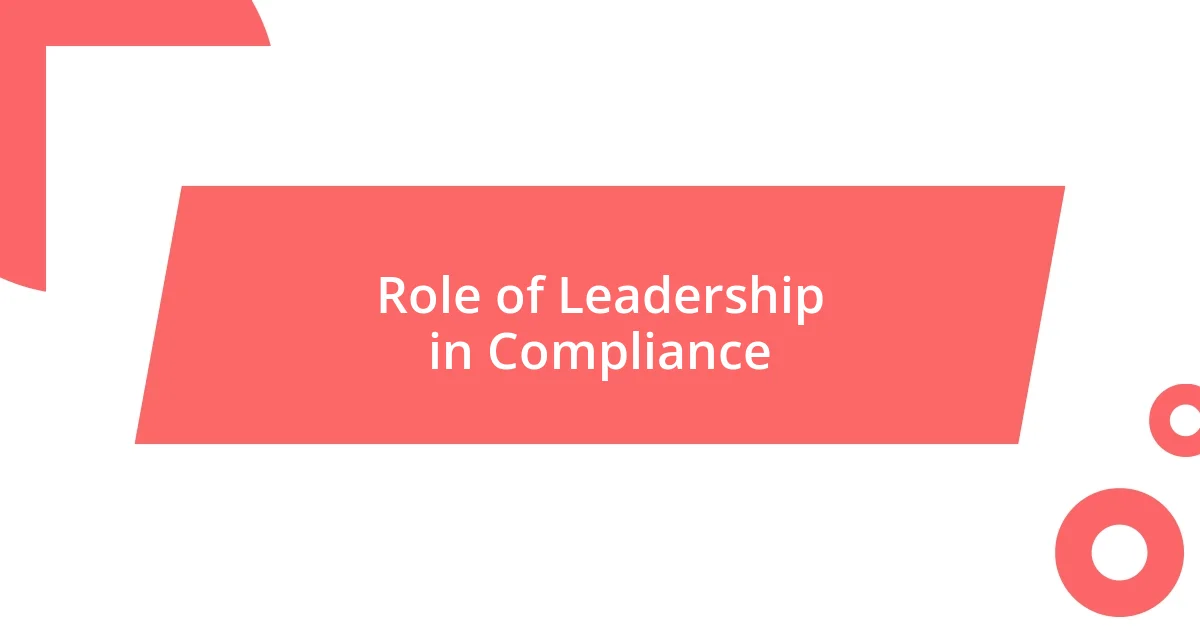
Role of Leadership in Compliance
Leadership plays a crucial role in shaping an organization’s compliance culture. I’ve seen firsthand how effective leaders set the tone for compliance by prioritizing it in their messaging. When a CEO openly discusses the importance of ethical behavior and compliance in meetings, it resonates throughout the organization. Have you noticed how much more seriously employees take compliance when they see it modeled at the top?
I remember a time when our leadership team implemented an open-door policy specifically for compliance concerns. This transparency encouraged employees to share their thoughts, and I was genuinely surprised by the amount of feedback we received. It made me realize that when leaders create safe spaces for dialogue, it not only enhances compliance but builds trust within the team. Isn’t it empowering to know that open communication can lead to a more compliant organization?
Moreover, leaders can amplify their commitment to compliance by providing resources and training. I once participated in a compliance training session that was not only informative but engaging. The interactive exercises made compliance feel relevant and applicable to our daily work. It’s remarkable how leaders can transform compliance from a checklist task to something that feels integral to the company’s success. Wouldn’t you agree that a proactive approach from leadership makes a world of difference in fostering a culture of compliance?
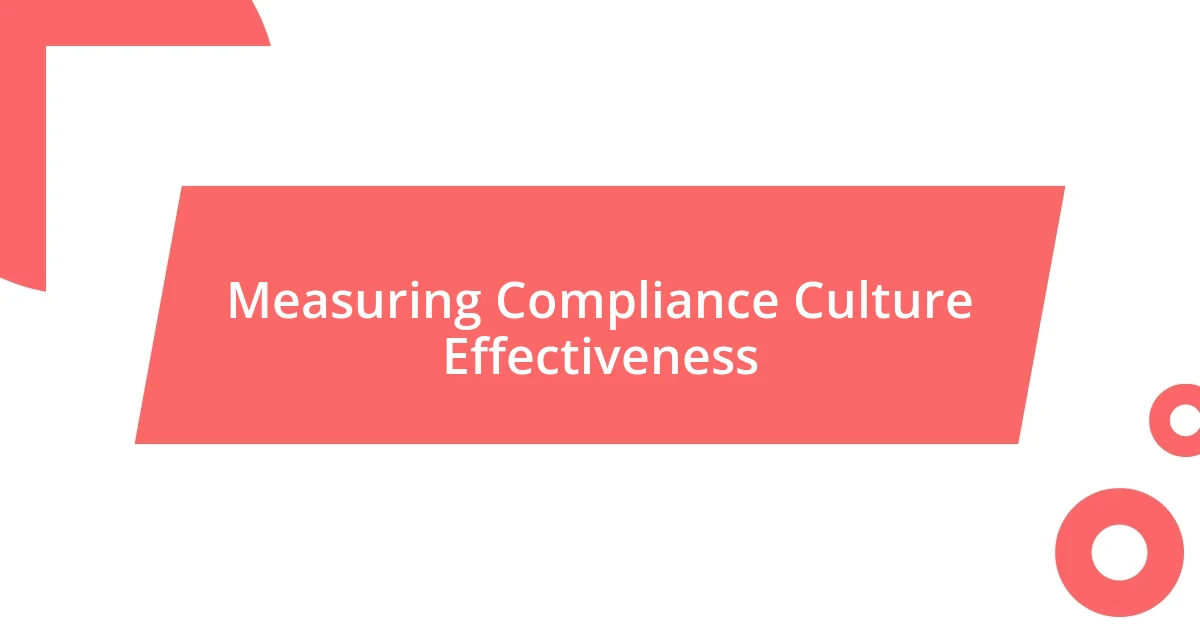
Measuring Compliance Culture Effectiveness
Measuring the effectiveness of a compliance culture goes beyond mere checklists and audits. In my experience, conducting regular pulse surveys can provide invaluable insights into how employees perceive compliance within the organization. I remember rolling out a simple survey where employees rated their comfort in discussing compliance issues. The results were eye-opening; it revealed areas where people felt uneasy and highlighted the need for better communication. Isn’t it fascinating how a few questions can spark conversations that lead to meaningful change?
Additionally, analyzing incident reports can offer a clear picture of compliance culture vitality. When I analyzed trends in compliance breaches at my previous workplace, it became evident how many incidents stemmed from misunderstandings rather than intentional wrongdoing. I can still recall the moment we realized that providing more training could mitigate future compliance risks. It was a revelation that shifted how we approached our strategy, transforming compliance into a preventive measure rather than a reactive one. Have you ever dissected trends in your organization to uncover hidden patterns?
Finally, engaging in qualitative feedback through focus groups can enrich our understanding of compliance effectiveness. I once facilitated a group discussion where employees candidly shared their experiences related to compliance practices. The honesty and depth of their insights were truly moving; it made me appreciate the complexity of fostering a culture that genuinely values compliance. Hearing firsthand how policies affected their daily work helped us tailor our approach, ensuring it resonated with everyone. Isn’t it inspiring to think that by listening, we can truly enhance a compliance culture?










